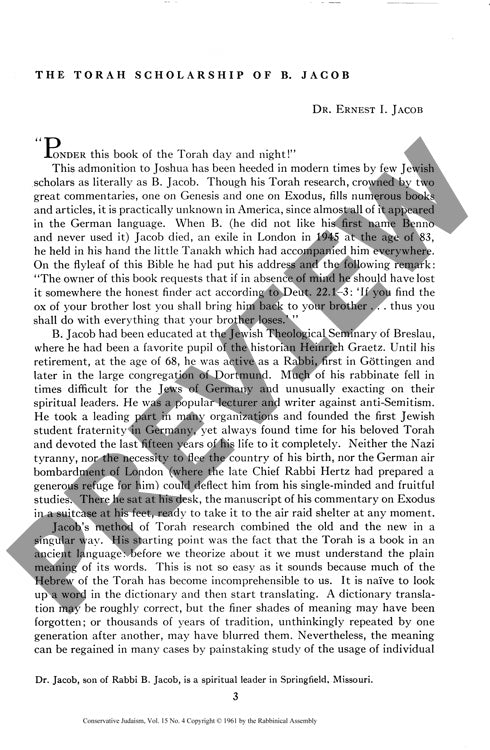The Torah Scholarship of B Jacob
Couldn't load pickup availability
Rabbi B. Jacob (1862-1945) pioneered a revolutionary approach to Torah scholarship that remains largely inaccessible to English-speaking audiences, despite its profound challenge to 20th-century biblical criticism. As a German-Jewish scholar, Jacob masterfully bridged traditional Jewish exegesis with modern philological techniques, developing three distinctive principles: intensive linguistic analysis of Hebrew texts, careful examination of often-overlooked biblical minutiae like genealogies, and a systematic refutation of higher criticism grounded in scholarly rather than orthodox arguments. His magnum opus comprised two extensive commentaries on Genesis (1934) and Exodus (published posthumously), each exceeding a thousand pages, complemented by numerous articles and unpublished manuscripts. Through biographical and methodological analysis, this study reveals how Jacob's work exposed anti-Semitic biases in contemporary Christian biblical scholarship while defending the Masoretic text's reliability. His innovative research also uncovered previously unrecognized rhythmic patterns in Torah structure based on numerical sequences. Jacob's comprehensive philological methodology and unique Jewish perspective represent a valuable contribution to biblical studies that merits broader recognition and translation for modern scholars.

More Information
-
Physical Description
-
Publication Information
Published 1961
ISBN
-
Publication Credits
Ernest Jacob

